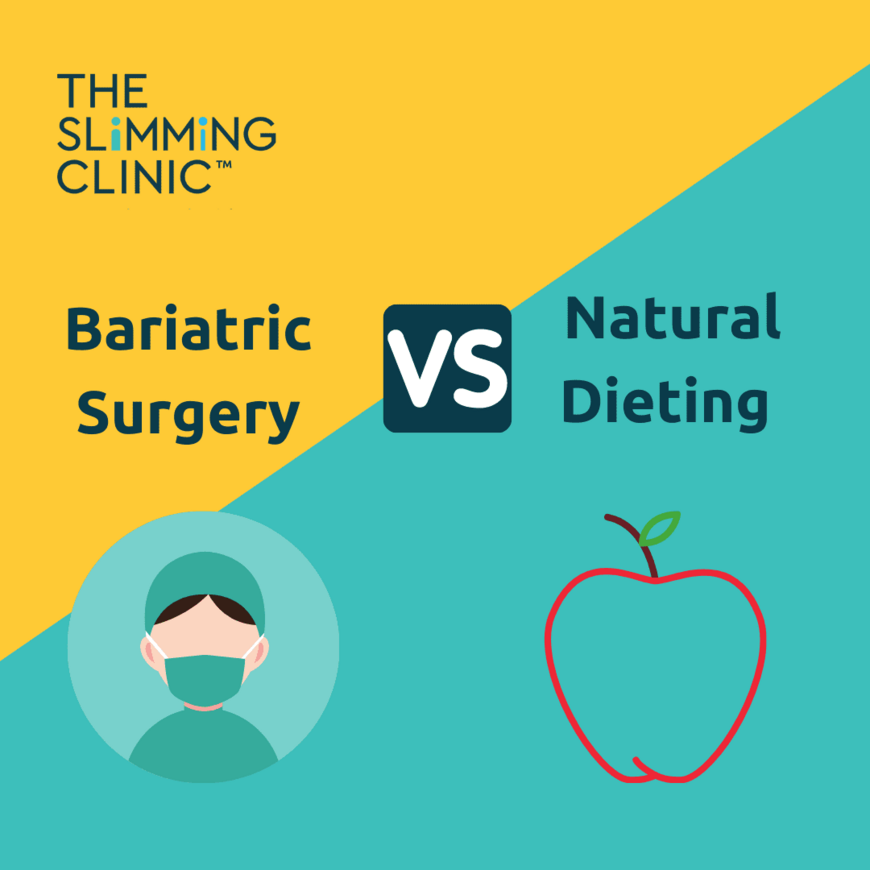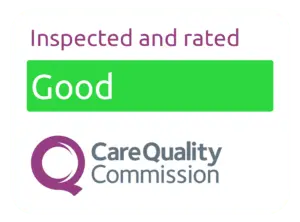Bariatric surgery vs natural weight loss – which is better?
“COVID-19 has reminded us how much our health matters”the NHS Better Health campaign states. But the truth is, most of us knew already how much our health mattered, but the global pandemic has heightened our, and now the government’s, need to prioritise our health more than ever. We are now reminded daily through government television and social media adverts that we need to attempt to keep our weight in a healthy BMI range, as well as look at the foods and drinks we consume and maintain regular activity, or we risk more health issues in the long run. But for a lot of us, we’ve tried that before with slimming groups or calorie counting, and we either just can’t seem to lose weight, or lose the weight and are unable to maintain it and gain it back (and sometimes more!)
So, what options do overweight and obese people have to lose weight, if they’ve tried most avenues for weight loss?
Back in June, prior to the formal announcement of the government’s Better Health campaign, Prime Minister Boris Johnson discussed the possibility of making more gastric band operations available on the NHS, for those most in need. However, with the headlines stating that currently about 1 in 14 of us could qualify for bariatric (stomach) surgeries and with each surgery typically costing anywhere from £4,000 up to £15,000, that could put the total bill to the NHS of gastric surgeries to £45billion per year. Which, to put it in perspective, is more than a third of the total health service budget for a year. But perhaps the up-front, one-off cost of bariatric surgeries vs the cost of treating overweight or obese patients over the course of their entire lifetime, could potentially make it a more cost-effective option? Could treating a patient once with surgery to reduce their weight be cheaper for the NHS, if it meant that the patient would not later suffer from long-term obesity-related illnesses such as diabetes, heart disease or cancer that would require expensive treatments over time? Looking into the cost-effectiveness of treating overweight and obese patients with gastric surgeries, an article published in 2017 by medical practitioners in the UK explained, “…bariatric surgery may often offer important health gains at an acceptable level of investment.” Showing that over time, the cost of the surgery could outweigh the costs involved in treating obesity-related illnesses. However, they also cautioned, “the potential demand for bariatric surgery is, however, likely to greatly exceed plausible levels of supply…As a “downstream” procedure, bariatric surgery will not stem the global increase in obesity.” Additionally, a study by the British Medical Journal (BMJ) in 2016 stated that less than 1% of those eligible for bariatric surgeries were being treated on the NHS. Simply put - many patients are not putting themselves forward for weight loss surgeries and even if everyone did, the demand would be so high, the NHS would not be able to keep up and ultimately, surgery would not stop the seemingly ever-increasing cases of obesity.What can we do in the long-term, then?
If patients are not having surgeries, and the costs of treating long-term obesity-related conditions is becoming too great for the NHS, what can patients do? The 2017 article explains that whilst surgery will help in a lot of cases, it is also important to investigate why people are suffering from being overweight or obese, when it is due to their lifestyles. “The role of surgery in treating (obesity) disorders apparently rooted in individual lifestyle, is also questioned.” To support this, whilst bariatric surgeries are halted as hospitals continue to battle the COVID-19 pandemic, in a bid to help patients who would be eligible for surgery and are unable to have it currently and to reduce the amounts of people waiting for surgery, patients are being treated for obesity with weight loss and healthy living education. In an article published to Obesity Surgery, doctors have been encouraging patients who are overweight or obese to look after their weight with “timely reminders and education about the various options of healthy eating…” as well as encouraging exercise, where possible to maintain their health and immune system. They also talk of the benefits of using technology to patients’ advantage, by using “online secure electronic platforms…to conduct group meetings/consults with dietitians and psychologists as required. Online social support groups can also be created.”But doctor’s appointments are hard to get, so how can a patient get educated and supported?
The Slimming Clinic recognise the need to support the NHS’ efforts in the reduction of obesity in the UK and that in a lot of cases, bariatric surgery is not the answer to long-term weight loss for patients. That’s why we use our doctor led services to educate patients and ensure they have the tools they need to not only lose weight, but to maintain their weight loss and, subsequently, health over the course of their lives. Built on the desire to see every single patient we treat succeed in reaching their weight loss goals, all the programmes we offer here at The Slimming Clinic are designed around education and support. We do this with regular, 1-to-1 remote doctor appointments and, depending on your weight loss programme, 1-to-1 access to weight loss experts in diet, mindset and movement. Spending time with you, as regularly as once a week, our doctors and experts work with you to help you make the small, realistic lifestyle changes that not only ensure you lose weight, but that improve your confidence, knowing that you have the knowledge, understanding and willpower to continue with your new healthy changes, once you have reached your weight loss goals. We offer online weight loss platforms full of useful resources via our Facebook group and soon, a portal, both of which are exclusively for our patients to gain support and advice when you need it most, any time of any day. Alongside these support tools, we also offer weight loss treatments where required, such as prescription medications and weight loss supplements. At The Slimming Clinic, we believe that every patient is individual, and, as such, we treat you that way. We design your weight loss programme around you, to give you the best chance to succeed in your weight loss journey, without the need to undergo invasive, often irreversible, surgery. We believe that every patient is capable of losing weight and maintaining weight loss and that to do so, you don’t have to be on a strict, calorie-controlled diet, count points or syns or restrict what you love. To us, it is as simple as individual education about how to live a healthier, more sustainable lifestyle over the course of your years. Related posts

Weight Loss Myths: BUSTED!

Nutrition and Hydration Week: How Food & Hydration Aid Weight Loss

How Sleep Affects Weight Loss – World Sleep Day 2025

Ramadan Weight Loss Guide: Balancing Fasting with Weight Loss Medications

12 Christmas Weight Loss Tips

Weight Loss Motivation: Stay Inspired to Achieve Your Goals
Looking to start your weight loss journey, then take action today!
Book an appointment with one of our GMC-Registered Doctors who are weight loss experts and can ensure you get the best programme for you. Alternatively request your medication online using our online prescription service.


